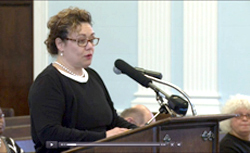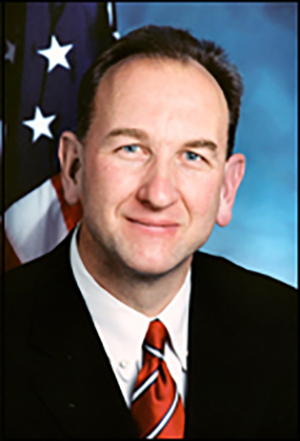 |
| In Niagara Falls city controller
Maria Brown cannot be independent
since the mayor and
council can fire her at any time. |
 |
| In Buffalo City Comptroller
Mark Schroeder doesn't have
to kowtow to the mayor of the
council. He is elected. Only the
people can fire him. Maybe Niagara
Falls needs a true independent
fiscal watchdog. |
|
|
|
|
|
Last week the city council's Financial Advisory Panel issued their yearend report with one of their key recommendations calling for the creation of a Budget Director position. While we criticized the call for the creation of yet another city hall job - we believe the finance panel nearly hit the mark with their recommendation. However, miss by an inch, miss by a mile, and "miss" is indeed what the panel did.
The financial management rearrangement shouldn't be made by creating a finance department sub-layer of presumed finance control with a Budget Director, but rather the rearrangement should be achieved by moving the city controller position from an appointed to an elected position. This move would realize a more responsive, a more responsible, a more reliable financial control system. Allow us to explain.
In the current fiscal management arrangement in city hall - a setup that has delivered out of control spending, a zeroed out casino revenue account, $63 million of debt, a current $7.6 million deficit, and an unfunded $1 million water line project on 72nd Street - the elected mayor, elected council, and appointed controller has resulted in an unresponsive, non-transparent, and dysfunctional money management system. The system works like this: the mayor proposes irresponsible spending, the council rubber stamps the spending, and the controller has to sit with hands tied for fear of alienating mayor and council. Adding insult to injury, the mayor and council then point an accusatory budget-breaking finger at each other - and the band plays on.
Logic dictates that until meaningful change is made to this disastrous money management formula, that no good change can possibly result from the setup. What to do? Move the controller position to the level of elected office and thereby make the controller a complimentary equivalent of the executive (mayor) and legislative (council) branches. Election of the controller protects the position from negative political meddling, and, dare say, from political strong arm tactics that are inevitable and unending in the present system.
The movement of the controller to an elected position elevates the day to day management of the city's financial system to a place where the controller can hold their own, answer only to the voter, and speak truth to power on those occasions when the council or mayor recommend irresponsible spending or choose to go down a specious fiscal road.
As we wrote in last week's edition of the Reporter, the fiscal sins of the city with a mega windfall of casino cash, plus large bed tax and sales tax dollars from a robust tourism economy, are both willful and institutional. To address those sins the institution itself must be changed. The movement toward an elected city controller would be a key part of that positive movement. Whether the Financial Advisory Panel was unable to see the need for, or were simply unwilling to bite the bullet in recommending the move toward an elected controller, doesn't matter because we've made the recommendation here and the ball has begun to roll toward the needed change.


